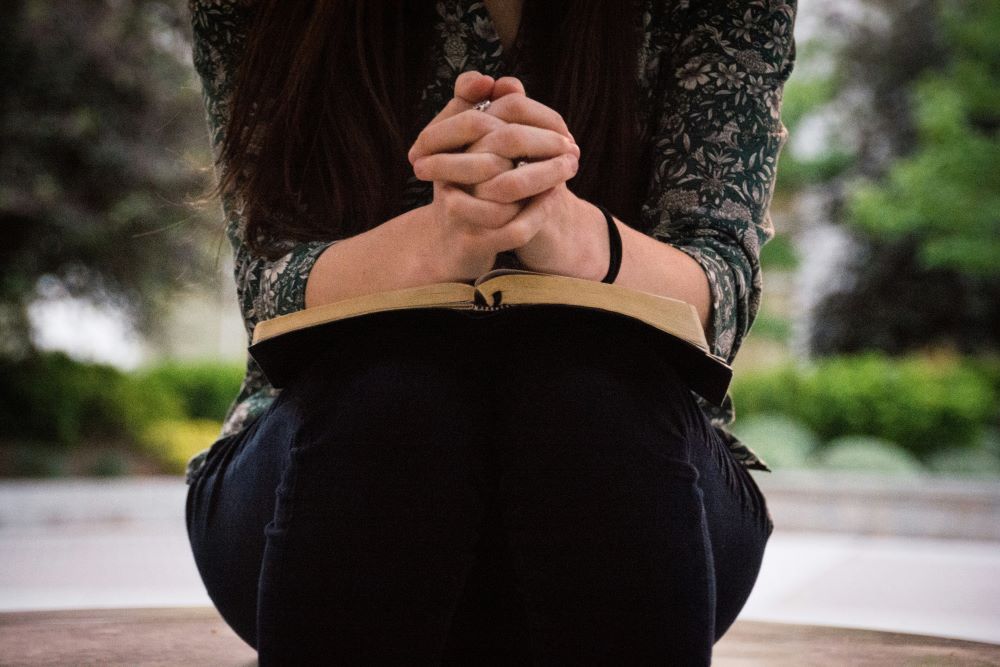
(Unsplash/Olivia Snow)
I'm old enough to remember repairmen — yes, they were all men — coming to the house to fix various appliances. During the 20-plus years I lived in the family home, we had the same furnace, washer and dryer, television, water heater and refrigerator. In the 20 years following, my parents had replaced the furnace once and the rest of those appliances at least twice each. In my current place of residence, the appliances are expected to need replacement soon. It will be the second replacement since I've been here. I've lost track of the number of cellphones, computers and automobiles I've used and have needed to replace. I could easily lament the seeming lack of quality that makes upgrades necessary or the quick-changing technology that makes things obsolete at a very fast rate.
While there is something fun about getting new things and seeing how technology has improved, there is also a big learning curve. For example, the car I drive is 8 years old and there are still buttons whose function I don't exactly know. And yes, I've read the manual. Clearly, those buttons are for things I don't need. When this car gets traded in, I'm sure the next one will come with a bunch of other buttons that I won't know what to do with, at least initially. The new office computer I was given didn't "talk to" the shared drives as it should, and we won't talk about the hours information technology staff spent trying to connect a network printer to it. Is the new computer faster and more powerful? Yes, but what I had was just fine, and I knew how to navigate it.
Like it or not, everything needs to be upgraded from time to time. It's much easier to embrace change than resist it, or worse yet, have whatever it is stop working and be forced into an immediate replacement. Silly as it may sound, "It's time for an upgrade" has now made its way into my daily personal prayer life.
My bookshelf holds various versions of the Christian Prayer book and several other printed resources. I receive daily emails of Scripture reflections from America magazine and meditations from the Center for Action and Contemplation. My Franciscan place of ministry pauses every afternoon for daily Examen, borrowed from the Jesuit tradition. There are ample opportunities for eucharistic liturgy where I live and minister. The list could go on. All are wonderful options, deeply meaningful, and all have served me well. There is nothing wrong or out of date with any of those prayer experiences, but I was restless. Hence my need for an upgrade. And to be clear, I know prayer isn't always warm, fuzzy and comforting.
Advertisement
I wish there was a magic formula I could share, but truth be told I had to experiment to see what would calm my restlessness. It is still very much a work in progress. Here are some things I have tried.
- In daily life, instead of regular times for prayer, I found quick "real-time" moments much more valuable. I connect with God in the heat of the moment: being thankful, penitent or seeking guidance right on the spot. A quick pause before proceeding with whatever I am facing is usually all anyone notices.
- When I am not cantoring or part of the choir for liturgy, sometimes I don't sing. I hadn't planned that; it just sort of happened. I follow along and let the text and music wash over and soak into me. Song lyrics can be very powerful when the message instead of the melody is the focus.
- Liturgy will find me with my phone out. No, I'm not checking email or scrolling through social media, rather I'm taking notes on whatever jumps out at me. Maybe it's a word or phrase that I want to go back to later, or something I want to check (did the prayer really say that?). Taking a few notes helps me focus sometimes, and I find I avoid liturgy becoming a "rote thing."
- I now get most of the local, national and international news online. This allows me to pause to really hear and process what I'm seeing and reading. Living where there is a 24/7/365 news cycle, it's easy to go from thing to thing and not "feel" the impact. When the latest Middle East war started, I could look up seemingly missing information (I'm still not sure why Palestine and Israel always seem to be fighting). And, I can delight in the much-needed good news stories that are sometimes forgotten or ignored in this time of war, climate crisis and so many other life-and-death realities.
- Retreat became a series of six consecutive long weekends away from ministry instead of the more usual retreat week format. I had homework between those weekends. As odd as it sounds, this was a game changer for me. Weekends were intense extended sessions followed by several days to process or "let things work."
Figuring out my "upgrade" took more work than I would have liked, but then most worthwhile things are like that, aren't they? I'd like to think my prayer upgrade is over and I can settle into a routine, but I also know that's not true. At some point I will become restless again. I will face choosing stagnation or upgrading again. I'm sure I will resist, but I also already know what I will choose.







